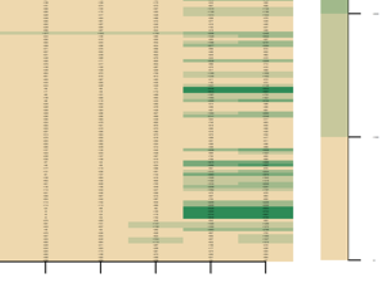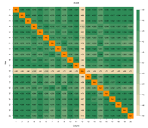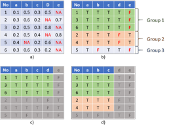Open topics for theses (Studienarbeit / Bachelor / Master)
Paradigm shift in obsolescence managment from classical modelling to AI/ML
A component becomes obsolete when it is no longer available from the original manufacturer in the original specification. In long lifecycle projects, obsolescence is a major problem as it prevents the system from being maintained. This is why obsolescence management is now an essential part of product support in sectors such as automotive, aerospace and rail, where systems need to be supported for several decades.
The earlier and still used methods for life cycle forecasting were based on the product life cycle model. The product life cycle model includes the six phases of introduction, growth, maturity, saturation, decline and phase-out. When sales decline to the point of being phased out, companies discontinue the product. Here one tries to fit a distribution (usually normal distribution) to the given data in order to estimate the further course. More current methods use data mining of sales data to fit the Gaussian trend curve to predict future sales. In the latest methods, an attempt is made to use parameter data with ML algorithms.
The task of this study is to conduct a literature review on which methods exist to determine obsolescence and on which different sources/data these predictions are based..
Recommended: Computer Architecture II Class
Date: February 3rd, 2022
Contact: Rebecca Busch, Michael Wahl
Computer architectures supporting AI/ML
Recently, new processors enter the maker which are designed to support AI/ML Algorithms. The idea by itself in nor really new, but is now getting the state where processors for normal machines get specific hardware, e.g. the Apple M1 processor. In this thesis, an overview on the state of the art shall be given, based on a solid literature study.
Recommended: Computer Architecture II Class
Date: February 2nd, 2022
Contact: Michael Wahl
Digital Integrated Systems Lab
This thesis focuses on the setup of the lab which will accompany the class "Digital Integrated Systems". This class is part of the new curriculum. In this theses, you will have to become familiar with the design system, fist. Then you will develop the lab tasks together with Ferid Mahdi, respecting the complexity which must suit the students. The documentation will consist of the students lab guide and the descritption of the approach you have taken.
Recommended: Experiece with FPGA programming
Date: February 3rd, 2022
Contact: Ferid Mahdi, Michael Wahl
Influencing factors in semiconductor manufacturing
Within the framework of the iDev40 project, we are working on yield prediction in semiconductor manufacturing using AI methods. A wafer wafer goes through hundreds of individual process steps during production. In the process, different types of data are generated and the goal is to predict the yield with the help of AI methods. Yield is the number of functioning chips in relation to all chips on a wafer.
Various studies have shown that the yield differs significantly for different devices, even though these devices pass through the same machines during production. The task of this work would be to identify the factors that lead to these poorer yields for these devices (preferably also using AI methods), programmed in R, and to design possible solution strategies. For this purpose, the exact sequence of manufacturing steps of these devices have to be compared with the sequences of other devices and the results will be evaluated.
Recommended: Experience in R programming
Date: June 7th, 2021
Contact: Rebecca Busch, Michael Wahl
Semi-automatic pre-processing of unknown data sets for AI/ML appliacations (Master)
Research work on yield prediction in wafer production is currently underway as part of the iDev40 project. This often involves processing large amounts of data of different compositions. The analysis and preparation of the data sets must be adapted and optimised again and again. This proves to be rather time-consuming.
 |  |  |
| Pattern recognition | Frequency analysis | Data selection |
The aim of this work is to preprocess different data sets for machine learning models. This includes an automatic analysis and optimisation of the data with the possibility of influencing the nature of the target data set. Depending on the prior knowledge of the data set, value is to be placed on certain parameters.
The topic is suitable for students of electrical engineering or computer science. Basic knowlwdge in R or Python is helpful.
Date: June 7th, 2021
Contact: Peter Stich, Michael Wahl
Analysis of automotive bus systems (Bachelor)
One of the tasks in the TRUST-E system is the definition of safe communication betwen sensors, modules, and system. In this thesis, a study will be done which analyses existing buses as they are used in autiomotive concerning their performance, first. In the second step, secure communication protocols will be analysed concerning their applicability with respect to the avaialable computational power. The result of this work will be a detailed proposal which secure communication means (hardware & software) can be establiashed on the different levels (senor, module, system) to exchange heath informatiuon. Additionally, an example protocol for secure sensor communication can be implemented and demonstrated, depending on the progress of the thesis.
Date: May 27th, 2021
Contact: Peter Stich, Michael Wahl
